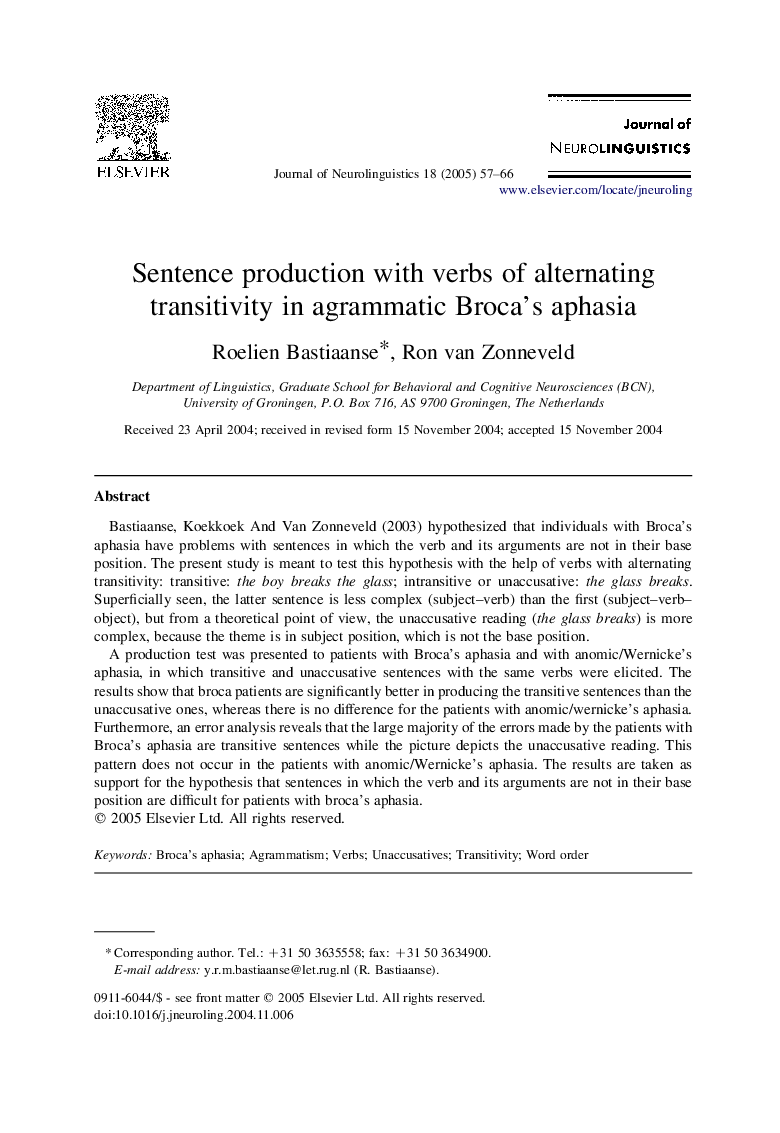| Article ID | Journal | Published Year | Pages | File Type |
|---|---|---|---|---|
| 10448899 | Journal of Neurolinguistics | 2005 | 10 Pages |
Abstract
A production test was presented to patients with Broca's aphasia and with anomic/Wernicke's aphasia, in which transitive and unaccusative sentences with the same verbs were elicited. The results show that broca patients are significantly better in producing the transitive sentences than the unaccusative ones, whereas there is no difference for the patients with anomic/wernicke's aphasia. Furthermore, an error analysis reveals that the large majority of the errors made by the patients with Broca's aphasia are transitive sentences while the picture depicts the unaccusative reading. This pattern does not occur in the patients with anomic/Wernicke's aphasia. The results are taken as support for the hypothesis that sentences in which the verb and its arguments are not in their base position are difficult for patients with broca's aphasia.
Related Topics
Life Sciences
Neuroscience
Cognitive Neuroscience
Authors
Roelien Bastiaanse, Ron van Zonneveld,
